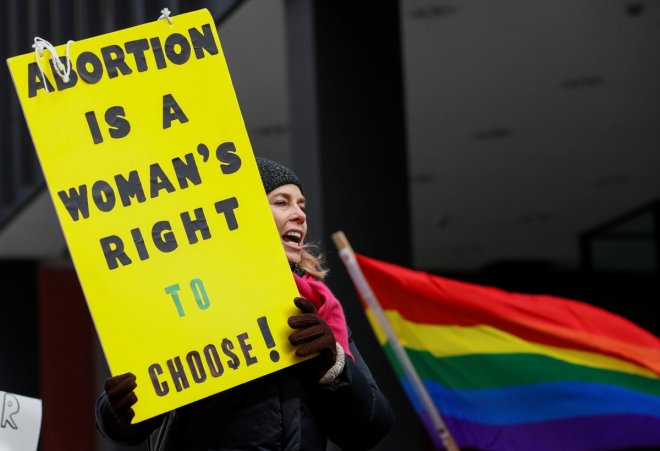
US President Donald Trump has started shaping America in his own terms, dashing hopes he woudl moderate positions once in office. The first shock came when Trump formally withdrew the US from the Trans-Pacific Partnership trade deal. The second blow came as the leader, who is often tagged as misogynist, restored a gag rule that bans US-funded groups around the world from discussing abortion – a move widely seen as a restriction of women's rights.
The rule, which is formally known as the Mexico City Policy, was created in 1984 under President Ronald Reagan, restricts American non-governmental organisations across the globe to provide abortion services. This rule was revoked by former President Barack Obama in 2009 when he took office.
"Women's health and rights are now one of the first casualties of the Trump administration," president of the Center for Health and Gender Equity, Serra Sippel said, according to Reuters. "The global gag rule has been associated with an increase in unsafe abortions and we expect that Trump's global gag rule will cost women their lives," she added.
According to the report, Trump signed the reinstatement directive on his fourth day in office – just two days after thousands of people took to the streets to protest against him and show unity for women's rights.
Also read: Trump staff delete climate change, healthcare and human rights from White House website
The global gag rule has been one of the most controversial rules of all times and every leader has had his own opinion about it. While President Bill Clinton revoked it in 1993, President George W. Bush reinstated it in 2001. However, Ann Starrs, head of the Guttmacher Institute, a leading reproductive rights group said there is no evidence the rule reduces abortion, reported Reuters.
"In fact, by targeting funding for overseas family planning programs, it may well have the opposite effect by making it harder for many women to avoid unintended pregnancy, which in turn would increase recourse to unsafe procedures by women who cannot access safe abortion care," she said as reported.
Meanwhile, for the abortion service providing organisations, it is also a murky situation. They can either follow the restriction to keep their funds coming in or be a rebel and lose their funding, said Brian Dixon of Population Connection Action Fund, according to the news agency.









